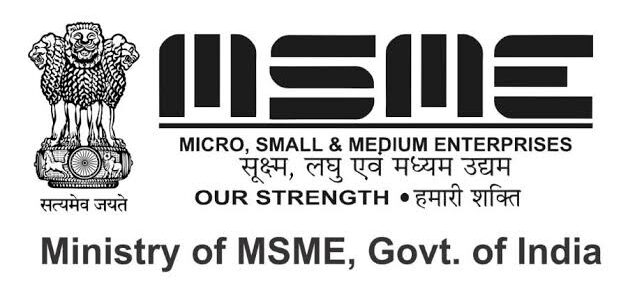A Private Limited Company is a popular form of business entity in India, known for its separate legal status, limited liability, and ability to raise capital. Accounting and bookkeeping for such companies are governed by a detailed framework of laws and regulations, ensuring transparency and accuracy in financial reporting.
1. Laws Governing Private Limited Companies
Private Limited Companies in India are governed by the following primary laws:
- Companies Act, 2013: This is the central legislation governing the formation, operation, and regulation of companies in India.
- Income Tax Act, 1961: Regulates taxation of income, including accounting and reporting requirements.
- Goods and Services Tax (GST) Act, 2017: Governs GST compliance for businesses engaged in the supply of goods and services.
- The Indian Contract Act, 1872: Governs contracts and business transactions.
- The Transfer of Property Act, 1882: Regulates the transfer of property used in business.
- The Negotiable Instruments Act, 1881: Governs transactions involving negotiable instruments like cheques.
2. Statutory Norms of Bookkeeping and Accounting
a. Accounting Standards
- Indian Accounting Standards (Ind AS): Private Limited Companies are required to follow Ind AS if their net worth exceeds ₹250 crore or if they are listed on a stock exchange. Smaller companies can follow the Generally Accepted Accounting Principles (GAAP).
b. Books of Accounts
Private Limited Companies must maintain the following mandatory books of accounts:
- Day Book or Journal: Records daily transactions.
- Cash Book: Records all cash transactions.
- Ledger: A collection of all accounts, categorized into debits and credits.
- Purchase Register: Records all purchase transactions.
- Sales Register: Records all sales transactions.
- Stock Register: Maintains details of inventory and stock movements.
- Bank Book: Records all bank transactions.
- Fixed Asset Register: Details the assets owned by the company.
- Register of Members: Maintains details of all shareholders.
- Register of Directors and Key Managerial Personnel (KMP): Records details of directors and KMPs.
c. Mode of Accounting
- Accrual Basis: Private Limited Companies must generally use the accrual basis of accounting, where transactions are recorded when they occur, regardless of when cash is received or paid.
- Cash Basis: Not commonly used for Private Limited Companies, except in specific cases or for small businesses under certain conditions.
- ERP Systems: Utilizing ERP (Enterprise Resource Planning) systems with audit trails helps streamline accounting processes, enhance accuracy, and ensure compliance. ERP systems manage transactions, generate financial reports, and maintain audit trails for all accounting entries.
3. Income Tax Laws for Accounting
a. Income Tax Act, 1961
- Taxation: Private Limited Companies are taxed at a corporate tax rate of 25% for companies with a turnover up to ₹400 crore and 30% for those exceeding ₹400 crore, plus applicable surcharge and cess.
- Books of Accounts: Companies must maintain books of accounts and records that provide a true and fair view of their financial position and performance. These records must be maintained for a period of 8 years.
- Income Declaration: All income must be declared, and expenditures must be substantiated with proper documentation.
4. GST Laws for Accounting and Bookkeeping
a. Goods and Services Tax Act, 2017
- Registration: Companies must register for GST if their turnover exceeds ₹40 lakhs (₹20 lakhs for North-Eastern states).
- Invoicing: GST-compliant invoices must be issued for every supply of goods and services.
- GST Returns: Companies must file GST returns (GSTR-1, GSTR-2, GSTR-3B) regularly. They must reconcile their sales and purchase data to ensure accurate GST compliance.
- Input Tax Credit (ITC): Proper documentation is required to claim ITC on purchases.
5. Income Tax Compliances for Accounting and Bookkeeping
- Annual Filing: Private Limited Companies must file annual income tax returns, including details of income, expenses, and taxes paid.
- Tax Audits: A tax audit is mandatory if the turnover exceeds ₹1 crore (or ₹5 crore for certain types of businesses). The audit report must be filed along with the income tax return.
- Advance Tax: Companies must pay advance tax if their tax liability exceeds ₹10,000 in a financial year.
- Transfer Pricing: For transactions with related parties, companies must adhere to transfer pricing regulations and maintain transfer pricing documentation.
6. Import and Export Regulations
- Import Export Code (IEC): Required for companies involved in import or export activities. The IEC must be obtained from the Directorate General of Foreign Trade (DGFT).
- Customs Compliance: Proper documentation, including invoices, shipping bills, and customs declarations, must be maintained for import and export transactions.
- GST on Imports: GST on imports must be paid, and proper records must be maintained to claim input tax credits.
7. Other Statutory Laws
- Employment Laws: Compliance with labor laws, including payment of wages, employee benefits, and statutory contributions like Provident Fund (PF) and Employees’ State Insurance (ESI), is mandatory.
- Environmental Regulations: Depending on the nature of business, environmental regulations may apply.
Audit Provisions
- Statutory Audit: Private Limited Companies must undergo a statutory audit conducted by a qualified Chartered Accountant. The audit ensures that financial statements present a true and fair view of the company’s financial position and performance.
- Audit Report: The auditor issues an audit report, which must be filed with the Registrar of Companies (RoC) along with the annual financial statements.
Conclusion
Private Limited Companies in India are subject to comprehensive accounting and bookkeeping regulations to ensure transparency, accuracy, and compliance. Maintaining proper books of accounts, following income tax and GST laws, and adhering to import-export regulations are essential for smooth business operations. Utilizing ERP systems with audit trails can significantly enhance the accuracy and efficiency of accounting processes.
For expert accounting and bookkeeping services tailored to your business model—whether manufacturing, service, or trading—contact WynSwell. We offer comprehensive services to ensure your business meets all statutory requirements efficiently and accurately.












